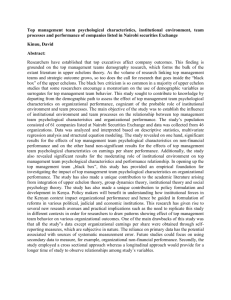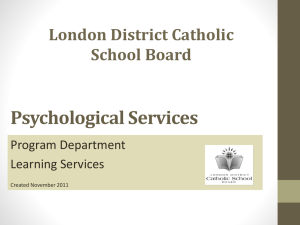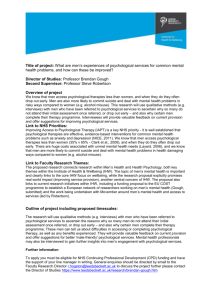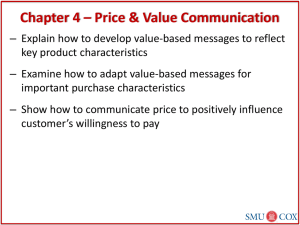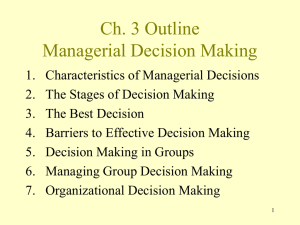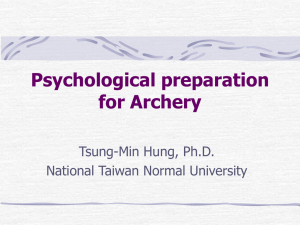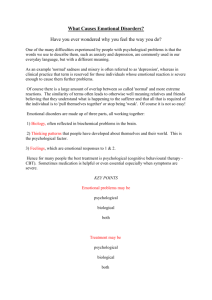Stage Directing Chapters 6,7
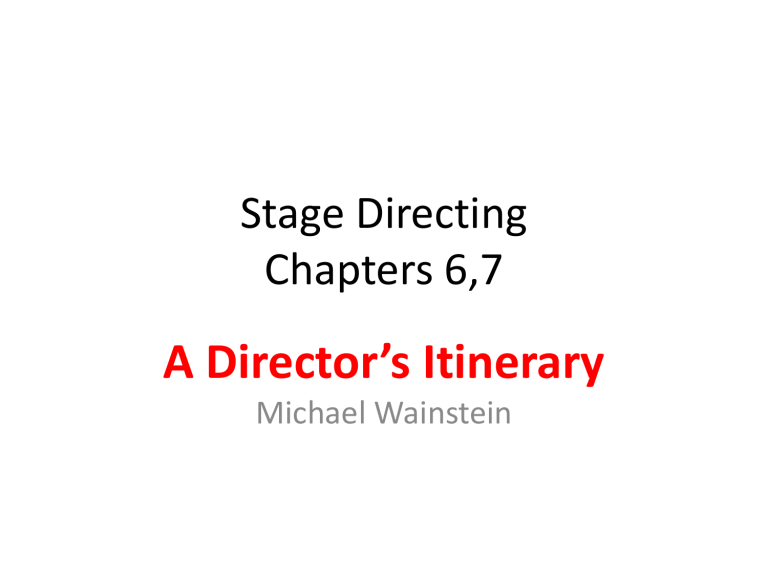
Stage Directing
Chapters 6,7
A Director’s Itinerary
Michael Wainstein
Why Research?
Director must be
• an expert in all subject matter related to play
• understand culture, history, society and morality of culture the play is set
• have a psychological understanding of the characters
• explain references in the scrpt
• develop a visual and psychological concept for the play
Director’s DPN
Provide research here as a resource for the production
Representational vs. Inspirational
• There are two types of visual information that can be helpful
Witchcraft
Inspirational research
The Internet
Where to Look
The Library
The Bookstore
OTHER RESEACH SOURCES
• Newspaper archives
• Real-life observation
• Oral research
• Movies and Video
• Museums
• Travel
Categories of Research
CHARACTER
– Character’s Background
– Educational systems
– Socio-economic status
– Social order
– Discourse (academic theories)
• Physical location
• Interiors
• Architectural
• Fashion
• Furniture
• Props
PLACE
HISTORICAL
• Events
• Forms of employment
• Religion
• Technologies
• Speech and dialect
• People
CULTURAL
• Art
• Fashion
• Design
• Theatrical trends
• Music
• Popular Entertainment
TEXTUAL
• Context
• Historical references
• Societal impact
• Playwright biography
• Era transposition
(does it work in another period?)
Chapter 7
CONCEPT
Definition
CONCEPT
• A plan or intention;
• An idea or mental picture of a group or class of objects formed by combining all their aspects
CONCEPTS TAKE TWO FORMS the psychological and the visual
PSHYCHOLOGICAL CONCEPT
• DEFINE THE DIRECTOR’S APPROACH TO THE
INTERNAL ACTION OF THE PLAY
• DEFINES HOW THE PLAYS SUPEROBJECTIVE
WILL BE BROUGHT TO LIFE
• WHAT DOES THE DIRECTOR WISH TO EXPRESS
THROUGH THE PRODUCTION
VISUAL CONCEPT
• THE DIRECTOR AND DESIGNERS’ APPROACH
TO THE EXTERNAL ACTION OF THE PLAY
– SETS
– SOUND
– COSTUMES
– LIGHTING
– SPECIAL EFFECTS
– PROPS
A process for developing the psychological concept
• State the super-objective and themes
• Write a short focus statement
• Create character focus statements
• Apply focus statements to character’s actions
• WRITE YOUR PSYCHOLOGICAL CONCEPT
STATEMENT (See text page 47)
Developing the VISUAL concept
• Use charts to document the requirements of the script…
Transposition
Ask these questions…
– Does the original period have special significance to the themes of the play?
– If the period is transposed, are the themes preserved?
– If a play is moved to another period, will this illuminate themes intened by the playwright in a way more accessible to modern audiences?
Good Example
Connecticut’s Long Wharf production of A DOLLS HOUSE (2010)
Bad Example is HAIR in another period
Atmosphere
“…A palpable, pervasive tone or mood that is external in nature, and thus felt and seen by the audience, albeit influential on the internal life of
the characters” (Wainstein, page 51)
Michael Chekhov
“Atmospheres for the artist are comparable to different keys in music. They are a concrete means of expression.”
STYLE
In order for designers to create their work…they must have a sense of style that is in harmony with that of the director.
Style is both objective, defined by the period and subjective, existing as an instinct in the director’s imagination.
Style choices are found in research, experience and imagination.
Examples of visual style
Spectacular
Minimalist
Realistic
Splashy, over-the-top
Funky (modern, Bohemian)
Other examples
Final thoughts
• Before beginning discussions with actors or designers, the director should have very clear idea of his or her psychological and visual concepts.
• Stay open to suggestions of others, it is a collaborative art


